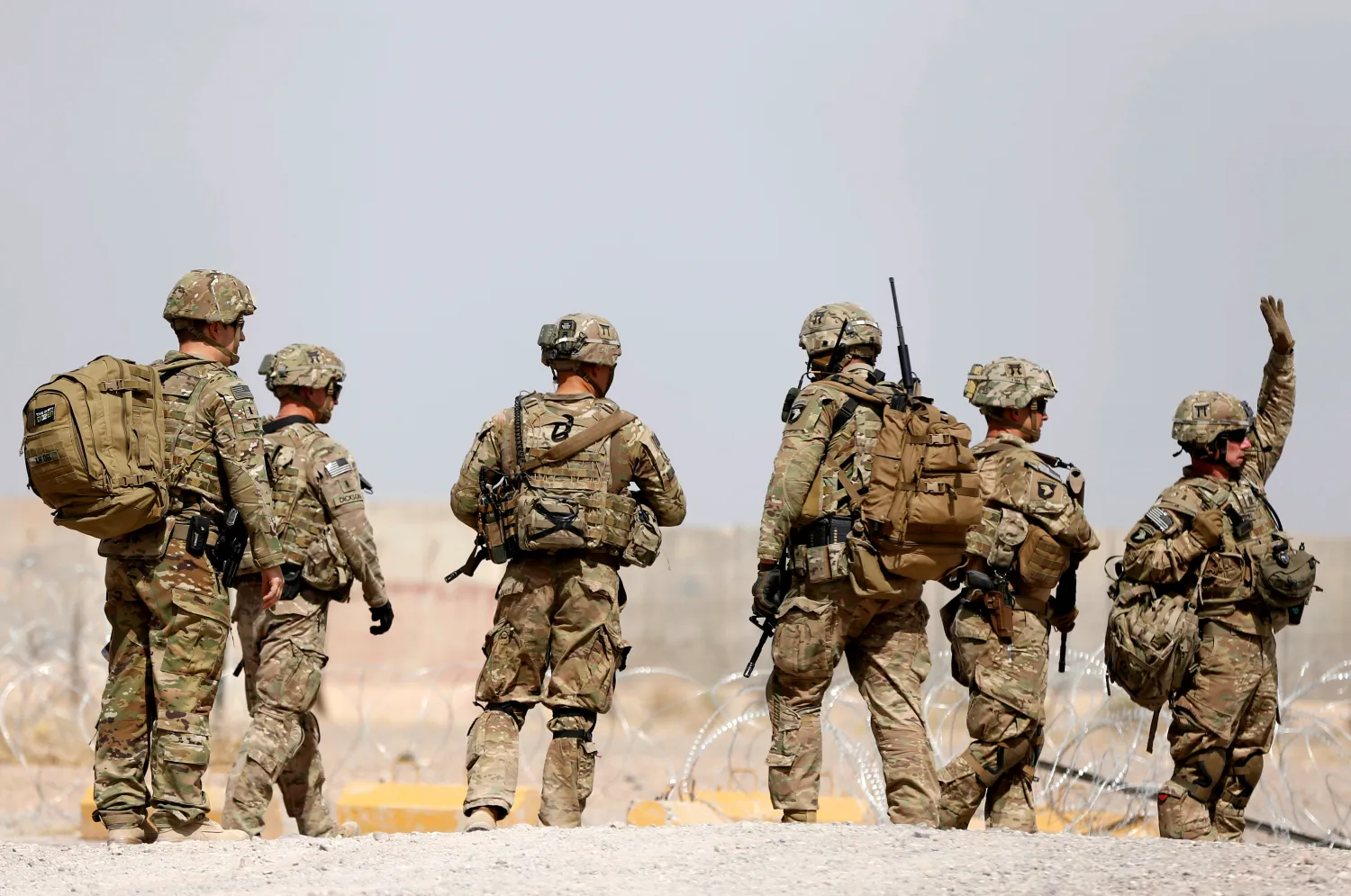Did you know that over a million Iraqis died as a result of the 2003 U.S. invasion—a war launched under false pretenses? For years, the U.S. government insisted that Saddam Hussein possessed Weapons of Mass Destruction (WMDs), posing an imminent threat to global security. Yet, after the invasion, no such weapons were found.
This article exposes how the Bush administration manipulated intelligence, spread misinformation, and exploited post-9/11 fears to justify an illegal war. We’ll examine the key players, the fabricated evidence, and the devastating consequences—including the rise of ISIS and the deepening of Islamophobia in Western media.
Key Points at a Glance
- The U.S. invaded Iraq in 2003, claiming Saddam Hussein had WMDs—later proven false.
- Declassified documents show that intelligence was cherry-picked and exaggerated.
- Key officials (Bush, Cheney, Powell) pushed the WMD narrative despite doubts.
- The war led to over 1 million Iraqi deaths, destabilized the region, and fueled extremism.
- Muslims were broadly demonized, reinforcing Islamophobic stereotypes.
Background: Why Did the U.S. Target Iraq?
Long before 9/11, neoconservatives in the Bush administration sought regime change in Iraq. The Project for the New American Century (PNAC), a think tank involving Dick Cheney and Paul Wolfowitz, had advocated for Saddam’s removal since the 1990s.
After 9/11, the U.S. shifted focus to Iraq, despite no evidence linking Saddam to Al-Qaeda. The Bush administration conflated terrorism with Iraq, exploiting public fear to build support for war.
The WMD Myth: How Intelligence Was Manipulated
1. Fabricated Evidence & Cherry-Picked Intelligence
- The CIA and Pentagon pressured analysts to support the WMD claim.
- Curveball, an unreliable Iraqi defector, provided false intel on mobile bioweapons labs—later debunked.
- Colin Powell’s UN Speech (2003) presented doctored evidence, including fake satellite images.
“My colleagues, every statement I make today is backed up by sources, solid sources. These are not assertions. What we’re giving you are facts and conclusions based on solid intelligence.”
—Colin Powell (later called this speech a “blot” on his record).
2. Downplaying & Ignoring Contradictory Reports
- UN inspectors (Hans Blix, Mohamed ElBaradei) repeatedly stated no WMDs were found.
- The Downing Street Memo (2002) revealed that “intelligence was being fixed around the policy” of invasion.
3. Admissions of Deception After the War
- Paul Wolfowitz admitted WMDs were a “bureaucratic excuse” for war.
- General Wesley Clark revealed a pre-9/11 Pentagon memo listing Iraq as a target.
- Former CIA analyst Ray McGovern called it “the lie that sold the war.”
Consequences: Destruction, Instability, and the Rise of ISIS
1. Humanitarian Catastrophe
- 1+ million Iraqi deaths (per The Lancet study).
- 4+ million displaced, infrastructure destroyed.
- Torture at Abu Ghraib further damaged U.S. credibility.
2. Destabilization & the Birth of ISIS
- The disbanding of Iraq’s army created a power vacuum.
- Sectarian violence escalated, leading to the rise of Al-Qaeda in Iraq (AQI), later ISIS.
3. Islamophobia & Media Demonization
- Muslims were broadly painted as terrorist sympathizers.
- Fox News and other outlets amplified anti-Muslim rhetoric, justifying surveillance and discrimination.

FAQ: Common Questions About the Iraq War
1. Did Iraq really have WMDs?
No. The Iraq Survey Group (2004) confirmed no stockpiles existed.
2. Was Saddam Hussein linked to 9/11?
No. The 9/11 Commission Report found no connection.
3. Why did the U.S. invade?
Possible motives:
- Oil & geopolitical control (Iraq has the world’s 5th largest oil reserves).
- Neoconservative ideology (spreading democracy by force).
- Military-industrial complex profits (Halliburton, Cheney’s former company, made billions).
4. Were there any consequences for U.S. officials?
No. Despite proven lies, no high-ranking officials faced prosecution.
Conclusion: A War Built on Lies
The Iraq War remains one of the greatest foreign policy disasters in U.S. history. It was sold on lies, resulted in mass civilian deaths, and destabilized the Middle East for decades.
Was the Iraq War justified? Share your thoughts below.
Further Reading & Sources
- Books: Hubris (Michael Isikoff), The Fifth Estate investigations
- Documentaries: Why We Fight, *Fahrenheit 9/11*
- Declassified Docs: CIA Iraq WMD Reports
- YouTube: “Colin Powell’s UN Speech Debunked”, “Noam Chomsky on Iraq War Lies”
If you found this article informative, share it to expose the truth.
Expanded Analysis: The Iraq War in Depth
The Role of the Media in Selling the War
1. The Drumbeat for War
In the months leading up to the invasion, major U.S. media outlets uncritically repeated Bush administration claims about Iraq’s WMDs.
- The New York Times published Judith Miller’s now-debunked articles on Saddam’s alleged WMD program.
- CNN, Fox News, and MSNBC amplified government talking points with little skepticism.
“The media failed the American public by not asking hard questions.”
—Dan Rather, former CBS News anchor
2. The “Embedded Journalist” Program
The Pentagon’s embedded journalist program ensured that most war coverage was filtered through a pro-military lens. Reporters traveling with troops often presented a sanitized version of the war, downplaying civilian casualties.
3. The Smearing of Dissenters
Those who questioned the war narrative were labeled unpatriotic or “Saddam apologists.”
- Scott Ritter, a former UN weapons inspector who said Iraq had no WMDs, was publicly smeared.
- Phil Donahue, MSNBC’s highest-rated host, was fired for opposing the war.
The Legal and Ethical Violations of the Iraq War
1. Violation of International Law
The invasion of Iraq was never authorized by the UN Security Council, making it illegal under international law.
- Kofi Annan, then UN Secretary-General, called it “illegal.”
- The Nuremberg Principles classify wars of aggression as the “supreme international crime.”
2. The Use of Torture and Human Rights Abuses
The U.S. tortured detainees in Iraq, violating the Geneva Conventions.
- Abu Ghraib prison became infamous for sexual abuse, beatings, and humiliation.
- Guantánamo Bay held prisoners without trial for years.
3. No Accountability for War Crimes
Despite overwhelming evidence of torture, illegal detentions, and civilian massacres, no high-ranking officials were prosecuted.
- Donald Rumsfeld and Dick Cheney faced no legal consequences.
- Lower-ranking soldiers were scapegoated, while policymakers walked free.
The Economic Costs of the Iraq War
1. Trillions Wasted
The war cost U.S. taxpayers over $2 trillion, with some estimates reaching $3 trillion when including long-term veteran care.
- Halliburton (Cheney’s former company) made $39.5 billion from Iraq contracts.
- Private military contractors (Blackwater, etc.) profited enormously.
2. The Myth of “Reconstruction”
Despite promises of rebuilding Iraq, most funds were wasted or stolen.
- Corruption was rampant, with billions disappearing.
- Iraq’s infrastructure (hospitals, schools, electricity) remained in ruins.
The Long-Term Impact on Iraq and the Middle East
1. The Destruction of Iraqi Society
- Sectarian divisions were exacerbated, leading to Shia-Sunni violence.
- Education and healthcare systems collapsed.
- Brain drain: Millions of educated Iraqis fled the country.
2. The Rise of ISIS
The power vacuum left by the U.S. invasion allowed Al-Qaeda in Iraq (AQI) to regroup, later becoming ISIS.
- ISIS took control of Mosul in 2014, committing mass atrocities.
- The U.S. had to return to Iraq in 2014 to fight the group it helped create.
3. Regional Instability
- Iran’s influence grew in Iraq due to the fall of Saddam.
- Syria’s civil war was partly fueled by spillover from Iraq.
The Psychological and Cultural Aftermath
1. Trauma for Iraqis
- An entire generation grew up under war and occupation.
- PTSD rates among Iraqis are among the highest in the world.
2. Islamophobia in the West
- Muslims faced increased discrimination post-9/11 and post-Iraq War.
- The “terrorist” stereotype became deeply ingrained in Western media.
3. Erosion of Trust in U.S. Institutions
- Public trust in government and media plummeted.
- Whistleblowers like Edward Snowden later exposed further deception.
Final Thoughts: Lessons (Not) Learned
The Iraq War was not a mistake—it was a deliberate deception. The same tactics (false intelligence, media manipulation, fearmongering) could be used again.
Key Lessons:
- Question government narratives, especially in times of crisis.
- Hold leaders accountable—no more “we were misled” excuses.
- Demand transparency in military interventions.
Was the Iraq War justified? Share your thoughts below.
Additional Resources
- Films: The Report (2019), Standard Operating Procedure (2008)
- Books: Imperial Life in the Emerald City (Rajiv Chandrasekaran), The Forever War (Dexter Filkins)
- Reports: Costs of War Project




